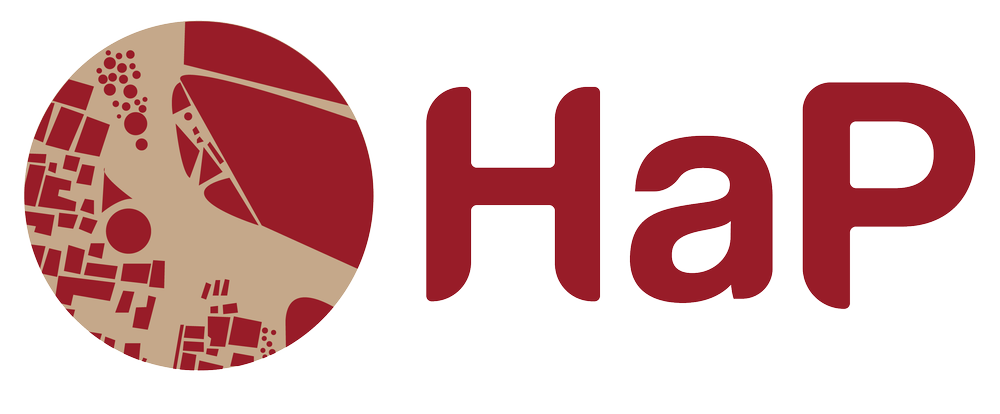HaP International Winter School 2024
Janakpurdham, Nepal
Organized by: Dr. Sabin Ninglekhu, Dr. Sasanka Perera and Dr. Pooja Kalita
In partnership with PayalSapanaPaints and Incredible Mithila
This year’s International Winter School titled ‘Pilgrimage as Placemaking in South Asia’ was held in the historic city of Janakpurdham, Nepal. Organized in collaboration with PayalSapanaPaints, a Feminist Mithila Arts Collective, and Incredible Mithila, a Janakpur-based organization working in the areas of cultural and natural heritage, the Winter School is part of an international research project called “Heritage as Placemaking: The Politics of Solidarity and Erasure in South Asia”, a joint collaboration between Social Science Baha, Kathmandu; School of Oriental and African Studies, University of London; and the Heidelberg Centre for Transcultural Studies, Germany. The week-long program included co-creative outdoor sessions in the city (eg. local artists-led Mithila mural paintings) as well as interactive indoor seminar sessions with Mithila artists and heritage preservationists, and with nationally and international-based scholars and researchers. With “pilgrimage” as a central theme, the winter school critically engaged with the concepts of “heritage” and “placemaking” to inquire how the three ideas of pilgrimage, heritage and placemaking are relationally co-constituted in complementary as well as conflicting terms. Through the sessions, the school also inquired into how such co-constitutions manifest in cultural and emotional geographies creating and renewing identities and meanings of cities, citizenships, nations and borders.
Janakpurdham is the ideal site to “translocate” these inquiries given its centrality in the itinerary of the Hindu pilgrims the world over. Monumentalized through the epic Ramayana as the birth place of goddess Sita, and historically connected to the city of Ayodhya, Lord Ram’s abode in India, Janakpurdham is also a central site of Hindu religiosity. In more recent years, Janakpurdham has become an integral node on the “Ramayana Circuit”: the Indian state-funded multi-million-dollar infrastructural project of connectivity meant to boost pilgrimage and religious tourism across cities in South Asia. Furthermore, through the Mithila art form, a traditional culture of wall and floor painting led by women of the Mithila region, a South Asian geographic area native to the Mithila language, the city of Janakpurdham is also connected to other places in Nepal and India, and Madhubani in Bihar in particular, where Mithila painting, also known as Madhubani art, is said to have originated.
Pilgrimage sites in South Asia such as Janakpurdham, Vanarasi and Ayodhya are hardly explored beyond the lens of concrete and tangible remains of the past. However, religious heritage and pilgrimage are fluid arenas where national borders and cultural subjectivities are challenged as well as altered in and through everyday mobilities of bodies and ideas. Beyond focusing on the tangible sites of heritage, such as ponds, temples and squares, the Winter School will place a particular emphasis on how heritage is lived, enacted, resurrected as well as re-interpreted through rituals of pilgrimage and performative cultures in and around these sites in Janakpurdham.
Winter School was scheduled to coincide with the festival of ‘Vivah Panchami’ in Janakpurdham, during which the city is inundated with pilgrims from across India and Nepal to commemorate the union of Ram and Sita. In fact, there are claims that the origin of Mithila Folk Art is rooted in this marriage union. The pilgrims, place, and performances, including real marriage ceremonies, together thus serve as an opportune time to critically capture the themes outlined in the title of this Winter School.
Finally, it is no secret that contestations and conflicts over religious heritage in associated places push us to re-think the question – ‘Whose heritage?’, especially in contemporary South Asia with the gradual rise of identity-based movements, on the one hand, and religious majoritarianism, on the other. As such, we want to highlight that these sites and performances stand at the intersection of religious beliefs, ethno-cultural nationalism, protocols of state bureaucracy, practices of tourism, dynamics of urban development, and aspirations of communities.
WINTER SCHOOL LEARNING OBJECTIVES
As a result of taking part in the HaP International Winter School 2024, participants will be able to...
Learn more about the evolving role of arts and artists in sustaining as well as redefining heritage, by focusing on, for example, the relationship between Mithila Folk Art and Vivah Panchami.
Critically recognize the importance of pilgrimage in religious placemaking in the city.
Understand the interlinkages between pilgrimage sites, religious heritage and state machineries.
Challenge assumptions about the rigidity of national borders through the concept of fluidity vis-à-vis pilgrimage.


